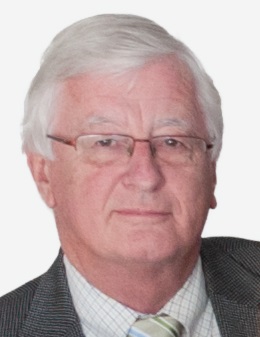
In this section:
Newsletter: July 2017
In this newsletter

Oral health practitioners and tongue ties Recently the Dental Council has been made aware of concerns relating to dentists becoming involved in the treatment of tongue ties - sometimes in very young babies.
Oral health practitioners and tongue ties
Recently the Dental Council has been made aware of concerns relating to dentists becoming involved in the treatment of tongue ties - sometimes in very young babies. Although within the scope of an oral health practitioner – as the correction of the condition is within the oro-facial complex – dentists need to be certain that they are clear of the indications for the surgery. Where that indication is for a health condition that is not within the scope of practice of an oral health practitioner to diagnose, a proper referral should be received. We have received anecdotal reports of a number of adverse outcomes, some of a serious nature. Serious complications have included excessive trauma and an admission to hospital with significant haemorrhage. Council has also heard a report of a tongue tie being treated before the baby had received their Vitamin K injection.
To date, we have not received any formal notifications relating to this type of treatment. However, the Council is concerned about these anecdotal reports, particularly given the young age of the patients involved, and the potential for harm.
Although this surgery is within the orofacial complex, those undertaking these procedures need to be able to demonstrate they have the necessary training, qualifications and experience - not just in the technique involved but also, in some cases, the patient management of very young babies.
Most district health boards have procedures in place now for the management of simple tongue ties which are evidence-based and safe. This treatment can also be non-traumatic and mostly effective. However, there is anecdotal evidence of aggressive treatment by some dentists on young babies who are having deep tissue procedures - under the tongue, under the top lip and in some cases, on the cheeks - with scissors or laser.
The management of tongue ties involves a robust diagnosis of the problem. If the problem being addressed is not within the scope of practice of an oral health practitioner, referral from an appropriate registered practitioner should be received and considered. Difficulty in breast feeding, for example, requires an assessment by an appropriate person who can consider all possible contributing factors before making a diagnosis. It is advisable to undertake these procedures only on the advice of a registered health practitioner experienced in that particular field. This could include a registered midwife, nurse or medical practitioner. Referrals from unregistered lactation consultants should be treated with caution.
Care needs to be exercised over advertising and web-based promotional material. Compliance with the Council’s advertising practice standard is of the utmost importance.
Similar soft tissue procedures may be for orthodontic reasons or as part of speech therapy. These patients are not as young but the same principles apply. The diagnosis and treatment plan should be developed by qualified practitioners and the surgery carried out by those with the necessary training and experience.
Key points:
- While some dentists may have the training, qualifications and experience necessary to undertake the treatment of tongue ties, the reasons for addressing the issue are not always within their scope of practice.
- Anyone practising this type of treatment must be able to demonstrate they have the necessary training, qualifications and experience to be able to do so safely.
